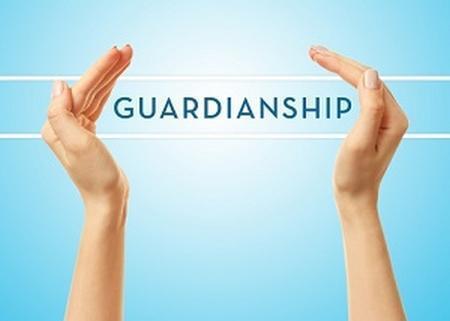What is the Difference Between Guardianship of the Person and the Estate?
 In Illinois, minor children and disabled adults sometimes require court-appointed guardians to help them take care of their regular needs and manage their finances. Guardianship cases are handled in probate court, and they can involve many complicated issues, including competing claims and questions as to whether guardianship is necessary. In order to prepare for these complications, it is important to understand the fundamental issues at hand—namely, who will serve as guardian of the person and guardian of the estate.
In Illinois, minor children and disabled adults sometimes require court-appointed guardians to help them take care of their regular needs and manage their finances. Guardianship cases are handled in probate court, and they can involve many complicated issues, including competing claims and questions as to whether guardianship is necessary. In order to prepare for these complications, it is important to understand the fundamental issues at hand—namely, who will serve as guardian of the person and guardian of the estate.
Guardianship of the Person in Illinois
A guardian of the person is responsible for the person’s care. In a minor guardianship case, the guardian of the person has many of the same duties as a parent, including making sure the child has adequate food, clothing, and shelter; providing for the child’s hygienic and medical needs; taking responsibility for the child’s education and extracurricular activities; and making important decisions regarding all of these matters. A guardian of the person may be appointed for the short term, perhaps if the parents are temporarily unable to care for the child, or for the long term, perhaps after the parents’ death or abandonment of the child.
The duties of a guardian of the person in an adult guardianship case are similar, including the responsibility to provide for the ward’s care and health and the authority to make decisions in their best interests. Sometimes, the guardian is also responsible for caring for the ward’s minor children. However, the extent of the guardian’s responsibilities is determined based on the ward’s needs. For example, a ward could be mentally capable of making their own decisions, while requiring the guardian’s assistance with their physical care.
Guardianship of the Estate in Illinois
A guardian of the estate is responsible for a person’s financial assets and property. In a case involving a minor, a guardian of the estate may be necessary if the parents have died and left the child an inheritance, or if the parents have proven to be irresponsible in managing assets in their child’s best interests. The guardian has the authority to disburse funds to provide for the child’s regular needs, as well as to safeguard and invest them for the child’s future use.
A guardian of the estate of a disabled adult often has more complicated assets and obligations to consider, including taxes, benefits, retirement savings, real estate properties, businesses, and other high-value assets, depending on the circumstances. As with a guardian of the person, a guardian of the estate for a disabled adult may have full or limited authority depending on the needs and abilities of the ward, and in some cases, a guardian of the estate may not be necessary at all.
Contact a DuPage County Guardianship Attorney
If you believe that you should be appointed guardian of a child or disabled adult, the attorneys at Mevorah & Giglio Law Offices can help you prepare and file your petition to demonstrate that guardianship is in the person’s best interests. We will also help you understand your responsibilities if you are appointed. Contact our Lombard, IL guardianship lawyers today at 630-932-9100 to schedule a free consultation.
 English,
English,
 Spanish,
Spanish,
 Polish,
Polish,
 Urdu
Urdu













 Make a Payment
Make a Payment



